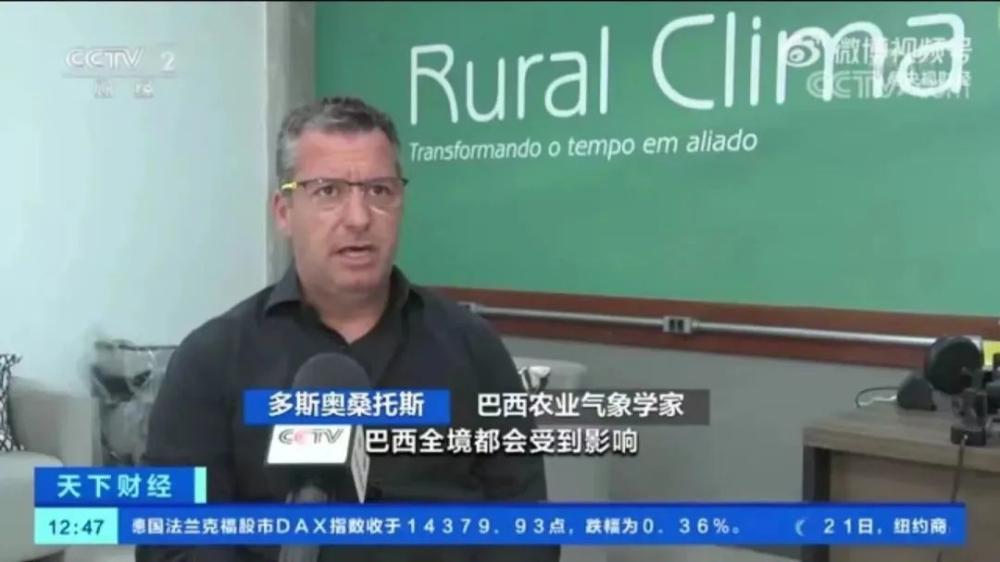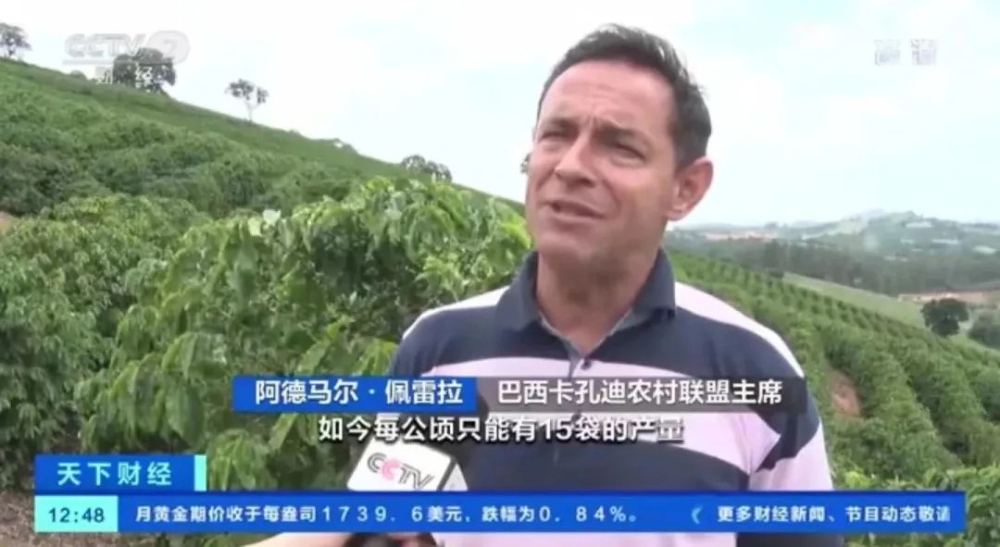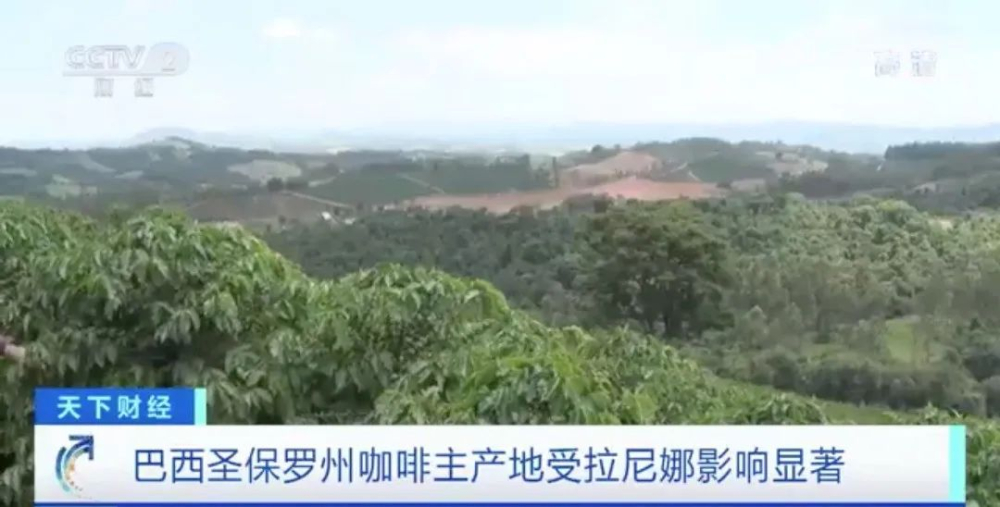Brazilian coffee bean production has been greatly reduced! The price of coffee beans will rise again in 2023.
Professional coffee knowledge exchange more coffee bean information please follow the coffee workshop (Wechat official account cafe_style)
For more boutique coffee beans, please add private Qianjie coffee on Wechat. WeChat account: qjcoffeex
Brazil, the world's largest coffee producer, has seen a sharp drop in coffee production, which is a critical period for crop growth in the southern hemisphere, but La Nina, which lingers in the Pacific Ocean, has been going on for three years, CCTV News reported.
The market expects that not only coffee, but also beans, corn and other major crops in Brazil will probably be reduced this year.

It is understood that La Nina phenomenon refers to the phenomenon that the sea surface temperature continues to be unusually cold in the eastern and central equatorial Pacific. La Nina affects temperature and precipitation patterns and exacerbates droughts and floods in different regions. The current La Nina phenomenon in Brazil began around September 2019 and has been mild or moderate most of the time since then. It gradually became more and more intense in April this year.
Brazilian agrometeorologist dos Osantos said: "whenever La Nina occurs, the whole of Brazil will be affected, with a sharp drop in rainfall in the south and floods in the north. During the summer and autumn harvest season from 2021 to 2022, south-central Brazil experienced severe drought, while the north was hit by torrential rains."

It is reported that the city of Cacondi, located in the southern Brazilian state of Sao Paulo, is the largest coffee producer, and 85% of the total annual revenue in the region comes from coffee bean sales. When the harvest is good in the region, the annual output of coffee beans is close to 14000 tons. However, after being affected by La Nina for more than three years in a row, local market participants expect the total production of local coffee beans to fall sharply to no more than 10,000 tons by the harvest season in May 2023.
Adhemar, co-chairman of Brazil's Cacondi Rural area. Pereira said that three years ago, the production area could produce 50 bags of coffee beans per hectare, but now it can only produce 15 bags per hectare. After years of bad weather, such as hail, Frosts Descent, water shortage and high temperature, the production of coffee beans has been greatly reduced. The weather has become a common concern for coffee growers in Brazil.

At present, it is a critical time for coffee trees to form coffee fruit and need a lot of water, but La Nina has caused the recent precipitation in Brazil to be lower than in the same period in previous years. As a result, the output and quality of coffee beans in Brazil will be seriously affected next year.
According to the data, Brazil is not only a famous coffee producing area, but also the largest coffee producer and exporter in the world, accounting for 1 / 3 of the world's total production, although it occupies a very important position in the whole coffee trading market. The reduction in production in Brazil will lead to a shortage of supply in the entire market, a significant increase in global coffee bean prices, coffee futures remain high, and domestic coffee traders are hoarding cash to protect demand in the domestic market.

Not only is Brazil affected by bad weather, Africa's largest coffee exporter is Uganda, which exported about 503000 bags of coffee beans, down 14 percent from the same period last year, Xinhua reported last month. The Uganda Coffee Development Authority said that the decline in coffee production in most parts of Uganda due to drought and the shortening of the coffee harvest season in central and eastern Uganda were the main reasons for the decline in coffee bean exports.
According to the International Coffee Organization, the total global coffee production in 2021-2022 was 167.2 million bags (60 kg each), down 2.1% from 170.83 million bags in the previous year, while global coffee consumption rose 3.3% to 170.3 million bags. It coincides with a decline in reserves and poor harvest prospects in the largest coffee-producing country, and global coffee consumption is recovering from the market downturn caused by the epidemic. But worry about supplies in Brazil and Africa.
Photo Source: Internet
Important Notice :
前街咖啡 FrontStreet Coffee has moved to new addredd:
FrontStreet Coffee Address: 315,Donghua East Road,GuangZhou
Tel:020 38364473
- Prev

As long as coffee is constantly styled, can it tie the stomach of the Chinese people?
Professional coffee knowledge exchange more coffee bean information please follow the coffee workshop (Wechat official account cafe_style) more boutique coffee beans please add private Wechat Qianjie coffee, WeChat account: qjcoffeex new Chinese style, in recent years has become a hot topic in the domestic catering industry. With the domestic
- Next

What do you need to pay attention to when you visit a coffee shop? What about the barista when the coffee shop meets someone who wants to kick the shop?
Professional coffee knowledge exchange more coffee bean information please follow the coffee workshop (Wechat official account cafe_style) more boutique coffee beans please add private Wechat Qianjie coffee, WeChat: qjcoffeex17 code clerk in the TV series to see this scene, the heart felt quite ridiculous! I didn't think of that.
Related
- What is the difference between Indonesian Sumatra Mantinin coffee and gold Mantinin? How to distinguish between real and fake golden Mantelin coffee?
- What does bypass mean in coffee? Why can hand-brewed coffee and water make it better?
- Unexpected! Ruixing Telunsu lattes use a smoothie machine to foam milk?!
- % Arabia's first store in Henan opens into the village?! Netizen: Thought it was P's
- Does an authentic standard mocha coffee recipe use chocolate sauce or powder? Mocha Latte/Dirty Coffee/Salty Mocha Coffee Recipe Share!
- What is the difference between Vietnam egg coffee and Norway egg coffee? Hand-brewed single product coffee filter paper filter cloth filter flat solution!
- What is the difference between sun-cured and honey-treated coffee? What are the differences in the flavor characteristics of sun-honey coffee?
- How to make Italian latte! How much milk does a standard latte use/what should the ratio of coffee to milk be?
- How to make butter American/butter latte/butter Dirty coffee? Is hand-brewed coffee good with butter?
- Is Dirty the cold version of Australian White? What is the difference between dirty coffee/decent coffee and Australian white espresso?

